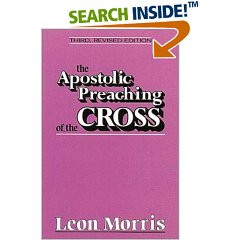
In Leon Morris’s book The Apostolic Preaching of the Cross, he gives us some insights on how to think about God’s wrath.
1. There’s no antithesis between God’s love and wrath:
“Perhaps the difficulty arises because we are making a false antithesis between divine wrath and the divine love. We are handicapped by the fact that we must necessarily use terms properly applicable to human affairs, and for us it is very difficult to be simultaneously wrathful and loving. But, upon analysis, this seems to be largely because our anger is such a selfish passion, usually involving a large element of irrationality together with a lack of self-control. Nevertheless, even in human affairs, such a thing as “righteous anger” is not unknown when some, at least, of the more unworthy elements are absent, and we catch a glimpse of a fiery zeal for the right which be perfectly compatible with pure love”. [1]
2. God’s wrath isn’t some irrational and uncontrollable anger:
“Those who object to the conception of the wrath of God should realize that what is meant is not some irrational passion bursting forth uncontrollably, but a burning zeal for the right coupled with a perfect hatred for everything that is evil.” [1]
3. Propitiation is God’s act of love:
“…(P)ropitiation is understood as springing from the love of God. Among the heathen, propitiation was thought of as an activity whereby the worshipper was able to himself to provide that which would induce a change of mind in the deity. In plain language he bribed his god to be favourable to him. When the term was taken over into the Bible these unworthy and crude ideas were abandoned, and only the central truth expressed by the term was retained, namely that propitiation signifies the averting of wrath by offering of a gift which secures the propitiation is from God Himself. [2]
[1] pg. 208-209
[2] pg. 211


No comments:
Post a Comment